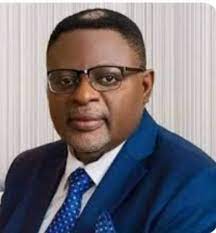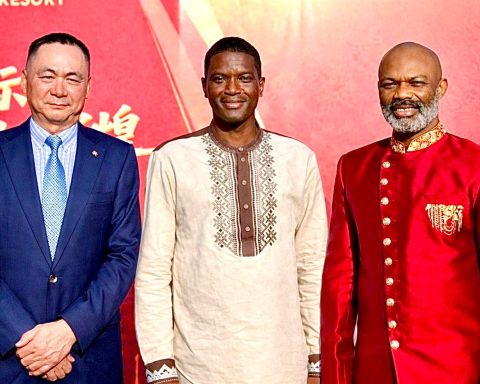Chief of Staff to President Bola Tinubu, Femi Gbajabiamila, has declared that effective governance in Nigeria cannot be achieved without full local government autonomy.
He urged all tiers of government to commit to the full implementation of the Supreme Court’s judgment granting constitutional autonomy to the 774 local councils across the country.
Join our WhatsApp ChannelGbajabiamila, a former Speaker of the House of Representatives, stated this on Saturday, in Surulere, Lagos, shortly after casting his vote during the local government elections. Speaking with journalists, he described local government autonomy as a non-negotiable pillar of democratic development.
“There cannot be effective governance without full autonomy. That’s what we are working toward,” Gbajabiamila said. “The Supreme Court ruling was welcomed by everyone. It’s the execution and implementation that we are still trying to dot the i’s and cross the t’s on. I believe that in a matter of time, we will realise full autonomy.”
READ ALSO: Mixed Reactions Trail Nigeria’s Supreme Court Judgment On LG Autonomy
His comment comes exactly one year after the landmark July 2024 Supreme Court judgment, which upheld the constitutional right of local governments to receive funding directly from the Federation Account free from interference by state governments.
The judgment followed a suit filed by the Federal Government through the Attorney General of the Federation and Minister of Justice.
Although the ruling was seen as a major legal victory for grassroots democracy, implementation has faced resistance from some state governments. Some governors have reportedly continued to maintain control over local government funds and administration, often dissolving elected councils in defiance of the judgment.
READ ALSO: Supreme Court Grants Financial Autonomy To LGs, Bars Govs From Dissolving Councils
The Senate, in response to growing public concern, held a closed-door session, where lawmakers decried efforts by some states to circumvent the ruling. The Deputy Senate President, Senator Jibrin Barau, announced a resolution urging all local and state governments to immediately comply with the Supreme Court’s decision. The chamber also resolved to initiate constitutional amendments that would guarantee unambiguous autonomy for local government administration.
Gbajabiamila’s remarks echo a growing national consensus that decentralising power to the grassroots is essential if Nigeria is to tackle insecurity, unemployment, infrastructure decay, and service delivery gaps.
Civil society organisations such as Yiaga Africa and the Transition Monitoring Group have also thrown their weight behind the call, urging the National Assembly and state legislatures to demonstrate political will by enacting enforceable reforms and holding erring states accountable.
As the country continues to grapple with issues of federalism and restructuring, the battle for full local government autonomy remains a test of Nigeria’s commitment to inclusive governance and true democracy.
Amanze Chinonye is a Staff Correspondent at Prime Business Africa, a rising star in the literary world, weaving captivating stories that transport readers to the vibrant landscapes of Nigeria and the rest of Africa. With a unique voice that blends with the newspaper's tradition and style, Chinonye's writing is a masterful exploration of the human condition, delving into themes of identity, culture, and social justice. Through her words, Chinonye paints vivid portraits of everyday African life, from the bustling markets of Nigeria's Lagos to the quiet villages of South Africa's countryside . With a keen eye for detail and a deep understanding of the complexities of Nigerian society, Chinonye's writing is both a testament to the country's rich cultural heritage and a powerful call to action for a brighter future. As a writer, Chinonye is a true storyteller, using her dexterity to educate, inspire, and uplift readers around the world.
- Amanze Chinonye
- Amanze Chinonye
- Amanze Chinonye
- Amanze Chinonye
- Amanze Chinonye
- Amanze Chinonye
- Amanze Chinonye
- Amanze Chinonye
- Amanze Chinonye
- Amanze Chinonye
- Amanze Chinonye
- Amanze Chinonye
- Amanze Chinonye
- Amanze Chinonye
- Amanze Chinonye
- Amanze Chinonye
- Amanze Chinonye
- Amanze Chinonye
- Amanze Chinonye
- Amanze Chinonye
- Amanze Chinonye
- Amanze Chinonye
- Amanze Chinonye
- Amanze Chinonye
- Amanze Chinonye
- Amanze Chinonye
- Amanze Chinonye
- Amanze Chinonye
- Amanze Chinonye
- Amanze Chinonye
- Amanze Chinonye
- Amanze Chinonye
- Amanze Chinonye
- Amanze Chinonye
- Amanze Chinonye
- Amanze Chinonye
- Amanze Chinonye
- Amanze Chinonye
- Amanze Chinonye
- Amanze Chinonye
- Amanze Chinonye
- Amanze Chinonye
- Amanze Chinonye
- Amanze Chinonye
- Amanze Chinonye
- Amanze Chinonye
- Amanze Chinonye
- Amanze Chinonye
- Amanze Chinonye
- Amanze Chinonye
- Amanze Chinonye
- Amanze Chinonye
- Amanze Chinonye
- Amanze Chinonye
- Amanze Chinonye
- Amanze Chinonye
- Amanze Chinonye
- Amanze Chinonye
- Amanze Chinonye
- Amanze Chinonye
- Amanze Chinonye
- Amanze Chinonye
- Amanze Chinonye
- Amanze Chinonye
- Amanze Chinonye
- Amanze Chinonye
- Amanze Chinonye
- Amanze Chinonye
- Amanze Chinonye
- Amanze Chinonye
- Amanze Chinonye
- Amanze Chinonye
- Amanze Chinonye
- Amanze Chinonye
- Amanze Chinonye
- Amanze Chinonye
- Amanze Chinonye
- Amanze Chinonye
- Amanze Chinonye
- Amanze Chinonye
- Amanze Chinonye
- Amanze Chinonye
- Amanze Chinonye
- Amanze Chinonye
- Amanze Chinonye
- Amanze Chinonye
- Amanze Chinonye
- Amanze Chinonye
- Amanze Chinonye
- Amanze Chinonye
- Amanze Chinonye
- Amanze Chinonye
- Amanze Chinonye
- Amanze Chinonye
- Amanze Chinonye
- Amanze Chinonye
- Amanze Chinonye
- Amanze Chinonye
- Amanze Chinonye
- Amanze Chinonye
- Amanze Chinonye
- Amanze Chinonye
- Amanze Chinonye
- Amanze Chinonye
- Amanze Chinonye
- Amanze Chinonye
- Amanze Chinonye
- Amanze Chinonye
- Amanze Chinonye
- Amanze Chinonye
- Amanze Chinonye
- Amanze Chinonye
- Amanze Chinonye
- Amanze Chinonye
- Amanze Chinonye
- Amanze Chinonye
- Amanze Chinonye
- Amanze Chinonye
- Amanze Chinonye
- Amanze Chinonye
- Amanze Chinonye
- Amanze Chinonye
- Amanze Chinonye
- Amanze Chinonye
- Amanze Chinonye
- Amanze Chinonye
- Amanze Chinonye
- Amanze Chinonye
- Amanze Chinonye
- Amanze Chinonye
- Amanze Chinonye
- Amanze Chinonye
- Amanze Chinonye











